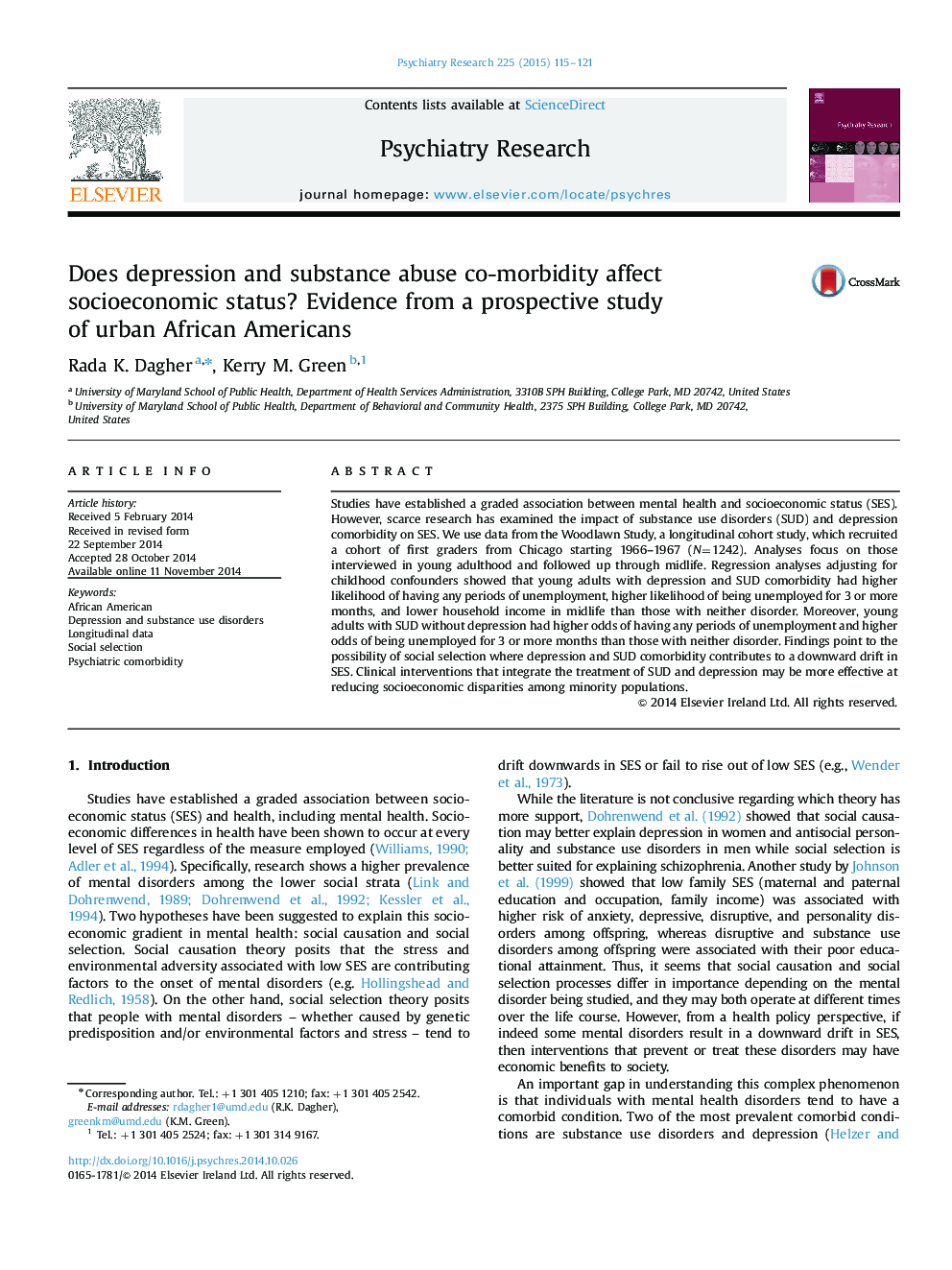| Article ID | Journal | Published Year | Pages | File Type |
|---|---|---|---|---|
| 332088 | Psychiatry Research | 2015 | 7 Pages |
Studies have established a graded association between mental health and socioeconomic status (SES). However, scarce research has examined the impact of substance use disorders (SUD) and depression comorbidity on SES. We use data from the Woodlawn Study, a longitudinal cohort study, which recruited a cohort of first graders from Chicago starting 1966–1967 (N=1242). Analyses focus on those interviewed in young adulthood and followed up through midlife. Regression analyses adjusting for childhood confounders showed that young adults with depression and SUD comorbidity had higher likelihood of having any periods of unemployment, higher likelihood of being unemployed for 3 or more months, and lower household income in midlife than those with neither disorder. Moreover, young adults with SUD without depression had higher odds of having any periods of unemployment and higher odds of being unemployed for 3 or more months than those with neither disorder. Findings point to the possibility of social selection where depression and SUD comorbidity contributes to a downward drift in SES. Clinical interventions that integrate the treatment of SUD and depression may be more effective at reducing socioeconomic disparities among minority populations.
